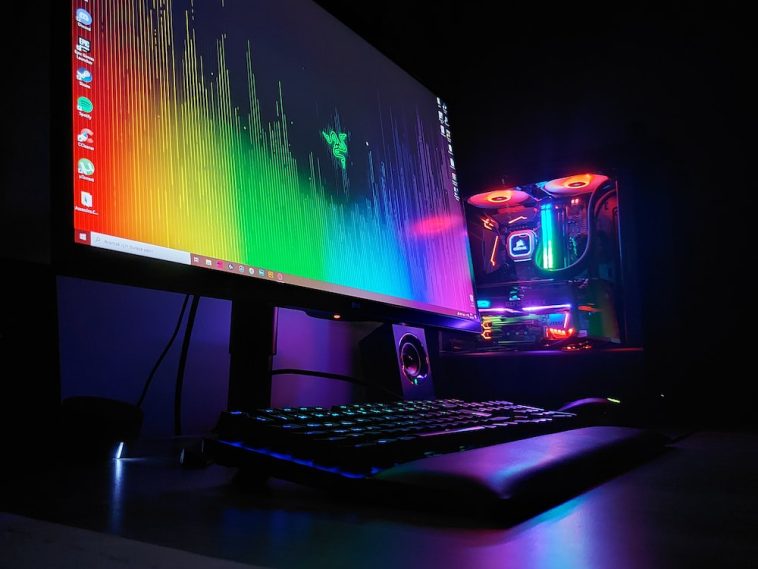Introduction.
Building a gaming PC doesn’t have to cost a fortune. Many people think you need to spend thousands of dollars to enjoy smooth gameplay, but that’s just not true.
With a bit of planning and research, you can create a setup that plays the latest games without breaking the bank.
Let me walk you through everything you need to know to build a gaming PC on a budget. I’ll cover choosing the right parts, where to save money, and how to get the most value out of your build.
You’ll also find answers to common questions and tips to avoid overspending. Let’s get started!
Why Build a Gaming PC on a Budget?
Gaming PCs can deliver better graphics, performance, and flexibility than consoles, but prebuilt machines can come with hefty price tags. By building your PC, you control every aspect of the cost.
Budget builds aren’t just about saving money—they’re about getting the best bang for your buck.
When you pick your parts, you can prioritize where to invest and where to cut back, ensuring you get the most performance for your money.
How Do I Build a Gaming PC On a Budget?
Step 1: Understand Your Budget and Goals
Start by setting a clear budget. A good range for an entry-level gaming PC is around $500–$800, though even lower budgets can deliver decent results. Ask yourself:
- What games do I want to play?
- What resolution and frame rates am I aiming for?
- Do I need extras like RGB lighting or future-proofing?
For example, if you’re playing esports titles like Valorant or League of Legends, you don’t need as much power as someone diving into AAA games like Cyberpunk 2077.
Step 2: Key PC Components and Where to Save
Here’s a breakdown of the parts you’ll need and tips for budget-friendly choices.
1. CPU (Processor)
The CPU handles the logic and calculations behind your games. Aim for something in the mid-range, like an AMD Ryzen 5 5600G or Intel Core i5-12400. These processors deliver great performance without blowing up your budget.
2. GPU (Graphics Card)
The GPU is the heart of any gaming PC. Consider options like the NVIDIA GTX 1650 or AMD RX 6600 for affordable performance. If you’re really tight on cash, integrated graphics from the Ryzen 5 5600G can handle lighter games until you can afford a dedicated GPU.
3. RAM
8GB of RAM is the bare minimum, but 16GB is the sweet spot for modern gaming. Brands like Corsair or Crucial often have sales, so watch out for deals.
4. Storage
Skip the hard drives and go for an SSD. A 500GB NVMe SSD is both fast and affordable, but if you need more space, pair it with a 1TB hard drive for storing large files.
5. Motherboard
Choose a motherboard that fits your CPU and GPU, but don’t overspend. Budget boards like the MSI B450M or ASRock B550M Pro4 offer everything you need for a gaming setup.
6. Power Supply Unit (PSU)
A 500–600W PSU is usually enough for budget builds. Stick to reliable brands like EVGA, Corsair, or Seasonic. Avoid super-cheap no-name PSUs, as they can damage your parts.
7. Case
Cases are all about personal preference, but you don’t need anything fancy. As long as it has good airflow and fits your components, you’re good to go. Look for budget-friendly options from Cooler Master or NZXT.
8. Cooling
Stock coolers that come with CPUs are usually fine for budget builds. If you’re pushing your system hard, consider an aftermarket air cooler like the Cooler Master Hyper 212.
Step 3: Where to Shop for Deals
To keep costs low, shop smart:
- Online Retailers: Websites like Amazon, Newegg, and Micro Center often have sales and discounts.
- Used Market: Check platforms like eBay or Facebook Marketplace for used GPUs or other parts. Just test everything before buying!
- Combo Deals: Retailers sometimes bundle motherboards and CPUs at a discount.
Step 4: Building Your PC
Don’t worry if you’ve never built a PC before—it’s easier than it looks. There are plenty of tutorials online, and most components are designed to fit only where they belong. Key steps include:
- Install the CPU onto the motherboard.
- Add RAM into the appropriate slots.
- Attach the cooler and install the motherboard into the case.
- Connect the PSU to the motherboard, GPU, and storage.
- Plug in your storage drives and GPU.
- Test the system before screwing everything into place.
Step 5: Setting Up Your PC
After assembling your PC, you’ll need to:
- Install an Operating System: Download Windows or try a free alternative like Linux.
- Download Drivers: Install drivers for your GPU, motherboard, and other components.
- Install Games: Use platforms like Steam or Epic Games to download and play your favorite titles.
FAQs
Q: Can I upgrade my budget PC later?
A: Absolutely! That’s one of the best parts of building a PC. You can start with a basic build and upgrade components like the GPU or RAM when you have more money.
Q: Are refurbished or used parts worth it?
A: Yes, especially for items like GPUs or cases. Just buy from reputable sellers and test everything thoroughly.
Q: Do I need a dedicated GPU for gaming?
A: For most modern games, yes. However, integrated graphics from certain CPUs (like AMD’s APUs) can handle casual and older games.
Q: How long will a budget gaming PC last?
A: A well-built budget PC can last 3–5 years with some upgrades along the way.
Conclusion
Building a gaming PC on a budget is an exciting challenge that can save you money while giving you the exact performance you need.
With a little planning and research, you can create a machine that plays your favorite games smoothly without overspending.
Now that you know the basics, here’s a question to get you thinking:
What’s the first game you’d play on your new gaming PC?





GIPHY App Key not set. Please check settings